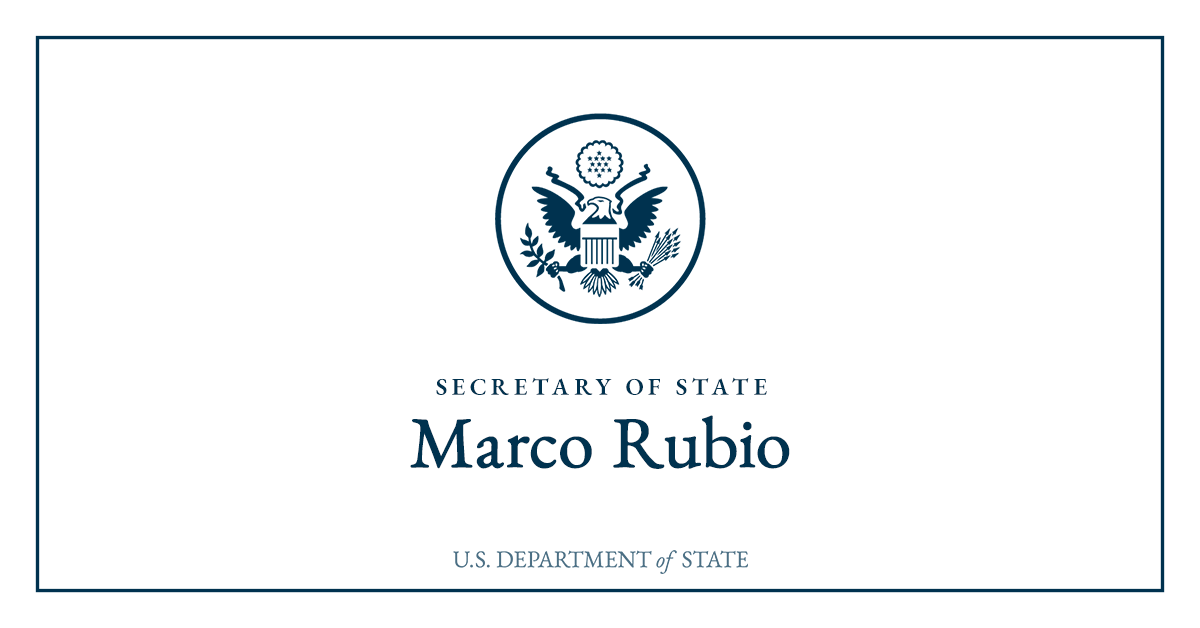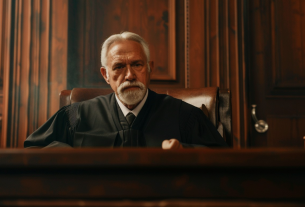QUESTION: Secretary of State Marco Rubio joins us now. All right, Secretary, you were in the room this afternoon with President Trump, Zelenskyy, all the European leaders. Was there a big moment that happened?
SECRETARY RUBIO: Well, I think the whole thing was a big moment, unprecedented really when you think about all these European leaders came here – seven that were there, and that included the head of the – of NATO and the head of the EU. And they all said the same thing, which is this – after three years of sort of deadlock and no talks and no change in circumstances, this is the first time where there seems to be some movement.
Now look, this is a complicated war. There’s no doubt about it. I mean, this has been going on for three and a half years. A lot of people have died, a lot of territories exchanged back and forth, so it’s not an easy thing to unwind. But nothing was happening on this war, literally. The only option that we were given under the previous administration was continue to fund Ukraine for however much they need for however long it takes, and now you have people actually talking about pathways towards ending it.
Now, it’s going to take a little bit more work and a little bit more time, but we are making progress. It’s not me saying it. That is virtually every leader there today said that in front of the cameras, and they’re saying it for a reason, because it’s true and they’re witnessing it and they’ve been a part of it.
QUESTION: So these European nations – and some of these are NATO countries – are they willing to put troops on the ground in Ukraine to cement this peace deal? Would that make Ukraine kind of like a NATO ally?
SECRETARY RUBIO: Well, what’s being contemplated – look, any sovereign country in the world has a right to enter into security alliances with other countries. It’s not just NATO. We have such alliances with South Korea. We have it with Japan. Other countries have it with each other. And so I think everyone would acknowledge – including, by the way, for the first time the Russian side under President Trump’s sort of pressure or suggestion – is that in fact a Ukraine post-conflict has a right to enter into security agreements with other countries.
And we will work with our European allies, and non-European countries by the way, to build such a security guarantee. We’re working on that right now. We’ll continue to work on that. And that will be something that will have to be in place after a peace deal so that Ukraine can feel safe moving forward. And we’re coordinating that as we speak. We’re involved in the coordination of it.
So yeah, there are a number of countries that are willing to step forward and provide Ukraine security guarantees. But as the Ukrainians have said to us, and I think have said publicly, the strongest security guarantee they can come up with with their future is to have a strong military moving forward, and that’s the other dynamic that’s changed. We’re no longer giving Ukraine weapons. We’re no longer giving Ukraine money. We are now selling them weapons, and European countries are paying for it through NATO. They are using NATO to buy the weapons and transfer them to Ukraine. That’s another big change from the way this war was approached just a few – just under the Biden administration, for example.
QUESTION: Absolutely. And the minerals deal is also a nice security guarantee.
SECRETARY RUBIO: Correct.
QUESTION: Another way. Were you in the room when the President talked to Vladimir Putin?
SECRETARY RUBIO: I was, I was. And in that conversation, what came from it is that the President suggested that Zelenskyy and Putin meet, so we’re working on that now to try to set that up for them to meet somewhere, which, again, would be unprecedented. And then if that goes well, hopefully the next meeting will be a meeting between Presidents Putin, Trump, and Zelenskyy, where we hope to finalize a deal. We’re not there yet, but that’s what we’re aiming towards and that’s one of the things that was discussed today, is how to get to that point.
But just the fact that Putin is saying, sure, I’ll meet with Zelenskyy – that’s a big deal. I mean, I’m not saying they’re going to leave that room best friends. I’m not saying they’re going to leave that room with a peace deal. But I think the fact that people are now talking to each other, this wasn’t happening for three and a half years. This was a stalemated war of death and destruction.
And let me tell you something. This President hates war and he – he hates it. He thinks it’s a waste of money and a waste of lives, and he has made it a priority – President Trump has – to bring about peace. If he sees an opportunity to step in and broker a peace, he wants to do it. He’s been successful already six times in six months in achieving that, and he wants to achieve it with Ukraine and Russia as well.
QUESTION: So the timeline, it looks, ideally, is Vladimir Putin meets with Zelenskyy and then President Trump and Zelenskyy and Vladimir Putin meet, the three of them, and hopefully cement some sort of peace deal then. The issue about giving land back seems to be the sticking point. Is that the main sticking point, is that Russia wants to keep the land that it’s taken militarily? And how do you get around that? What’s the negotiation over there?
SECRETARY RUBIO: Yeah, I don’t think it’s helpful to go into all the details of that, obviously, because these negotiations, frankly, work best when they’re done privately and in a negotiation setting. But look, I think we all understand that —
QUESTION: What? You don’t want to do it on national TV on Jesse Watters Primetime, Secretary? I mean, that’s just crazy.
SECRETARY RUBIO: (Laughter.) No. Oh, well, we’ll be more than – when we have a deal, I’ll describe it to you for sure.
SECRETARY RUBIO: But look, that’s why you’ve got to give these guys space to work. I mean, they have their own constituencies, okay? They have their own considerations, and you don’t want to give away one side’s leverage in that regard. But let me just say this about it: I think everyone understands that some of the key elements to bringing this about is Ukraine has to feel safe moving forward. In essence, they have to believe that at the end of this war, they are in a position to never get invaded again.
I think what’s also true – and I think it’s common sense, and I don’t know why it’s so hard for a lot of people to understand it – is in any negotiation to bring about the end of a war or any conflict for that matter, it’s going to require both sides to receive but also to give. In essence, one side is not going to get 100 percent here. Each side is going to have to make some concessions. And obviously, land or where you draw those lines – where the war stops – is going to be part of that conversation. And it’s not easy, and maybe it’s not even fair, but it’s what it takes in order to bring about an end to a war. And that’s been true in every war.
The only wars that don’t end that way are the ones that have unconditional surrender by one side or the other, and we’re not going to see that in this conflict. So obviously, the issue of that will be talked about, and the President’s been very clear. In the end, what those lines look like are up to Putin and up to Zelenskyy and up to the Ukrainian side to decide what each of them can live with. We are going to be there to facilitate that and make that possible and make sure that both sides are talking.
And by the way, President Trump is the only leader in the world – acknowledged by all the Europeans – the only leader in the world that can talk to both of them and bring them both to a meeting, is Donald J. Trump, the President of the United States. He’s the only one. And the fact that he’s willing to do it is something that every American, including Democrats, should be happy that we have a peace President; we should be proud that we have a President that’s made peace a priority in his administration.
QUESTION: Absolutely. And I think Zelenskyy symbolically already making some concessions, because he put on kind of a suit. So that is progress, Secretary.
SECRETARY RUBIO: It looked good, right?
QUESTION: I think it looked great.
SECRETARY RUBIO: Yeah. Yeah, he looked great.
QUESTION: We like to see it.
QUESTION: Well, great job, and keep up the great work. I know it’s tough stuff, but it looks like there is a lot of momentum here.
SECRETARY RUBIO: Thank you.



